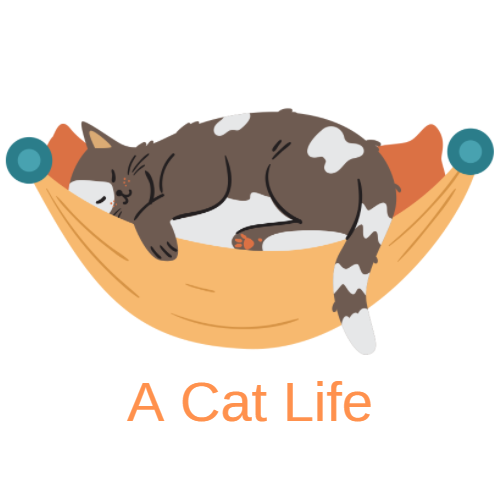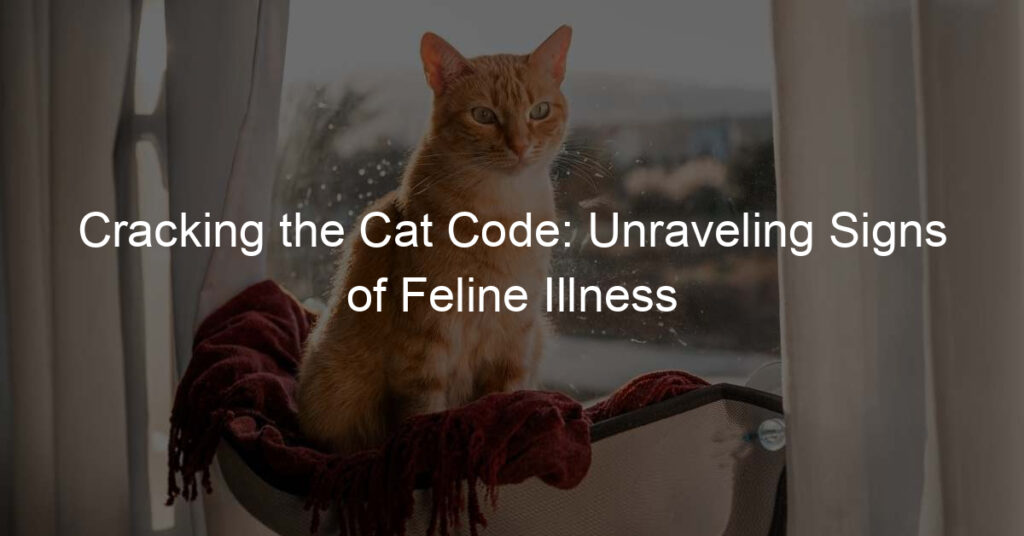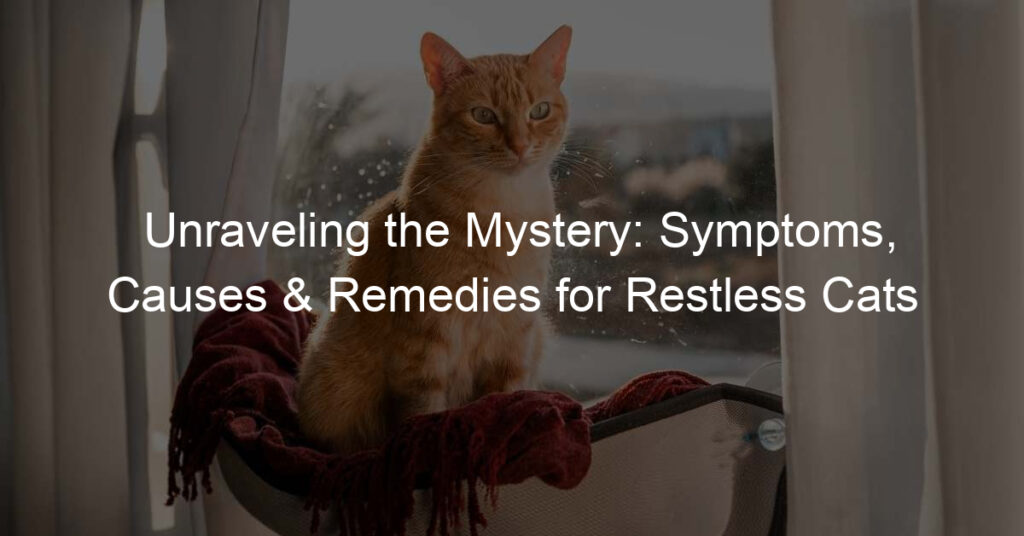
Introduction to Cat Health
Welcome to our comprehensive guide on cat health. In this section, we will introduce you to the importance of understanding cat health and debunk some common misconceptions about it. Our feline friends are often very good at hiding their discomfort, so it’s crucial for us, as responsible cat owners, to know the signs of potential health issues.
- The Importance of Understanding Cat Health
- Common Misconceptions About Cat Health
Understanding cat health is not just about knowing when your cat is sick. It’s about being proactive in maintaining their overall well-being. Regular vet checkups, a balanced diet, and plenty of exercises are all essential components of a healthy cat’s life.
Did you know that according to the American Veterinary Medical Association, cats are the most popular pet in the United States, with 58 million cats living in homes across the country? Despite this, cats are less likely than dogs to be taken to the vet for regular checkups. This is why understanding cat health is so important. The more we know, the better we can care for our feline friends.
There are many misconceptions about cat health that can lead to misunderstandings and potentially harmful decisions. For example, some people believe that cats always land on their feet and are therefore immune to injuries from falls. This is not true. While cats are agile creatures, they can still get hurt.
Another common misconception is that cats are independent and do not need as much care as dogs. While cats are indeed more independent than dogs, they still require regular care and attention to stay healthy. Ignoring your cat’s health needs can lead to serious health problems in the long run.
Stay tuned for the next sections where we will delve deeper into the signs of cat illnesses, understanding them, and a guide to caring for sick cats. Remember, a healthy cat is a happy cat!
Comprehensive Cat Health Guide
Understanding your cat’s health is crucial to ensure they live a long and happy life. In this guide, we will delve into recognizing sick cat behavior, which is an important part of maintaining your feline friend’s health.
Recognizing Sick Cat Behavior
One of the first steps in identifying if your cat is unwell is to observe any changes in their behavior. Cats are creatures of habit, and any significant alterations in their routine could be a sign of illness. Here are some behaviors to watch out for:
- Changes in eating habits: Cats typically have a consistent eating pattern. If you notice your cat eating less or more than usual, it could be a sign of a health issue. For example, a decrease in appetite can be a symptom of dental problems, while an increase could indicate conditions such as diabetes or hyperthyroidism.
- Changes in sleeping patterns: Cats sleep for an average of 13 to 14 hours a day. If your cat is sleeping significantly more or less, it could be a sign of illness. Excessive sleep can be a symptom of depression, while insomnia can be a sign of pain or discomfort.
- Changes in grooming habits: Cats are known for their meticulous grooming habits. If your cat stops grooming itself or starts over-grooming, it could be a sign of a health problem. Lack of grooming can be a symptom of arthritis, while over-grooming can be a sign of skin conditions or stress.
Remember, these are just guidelines. If you notice any changes in your cat’s behavior, it’s always best to consult with a veterinarian. Early detection of health issues can make a significant difference in your cat’s prognosis and quality of life.
Sick Cat Symptoms
As a cat owner, it’s crucial to understand the signs that your feline friend might be feeling unwell. Here are some common symptoms that could indicate your cat is sick:
- Vomiting
- Diarrhea
- Loss of Appetite
While occasional vomiting might not be a cause for concern, frequent or severe vomiting could be a sign of a serious health issue. It could be due to various reasons such as eating something harmful, an infection, or even a more serious underlying disease. If your cat is vomiting frequently, it’s important to seek veterinary care immediately.
Diarrhea is another symptom that shouldn’t be ignored. It can lead to dehydration, which can be dangerous for cats. Diarrhea can be caused by a change in diet, stress, infection, or a more serious health problem. If your cat has diarrhea for more than a day, it’s time to consult with a vet.
A loss of appetite in cats can be a clear sign that something is wrong. Cats are known for their love of food, so if your cat is refusing to eat, it could be due to illness. A loss of appetite can result from dental problems, an upset stomach, or a more serious health issue. If your cat refuses to eat for more than 24 hours, it’s essential to get them checked out by a vet.
Remember, these symptoms could indicate various health issues, and it’s always best to consult with a professional. Early detection and treatment can make a significant difference in your cat’s health and well-being.
Cat Illness Signs
One of the most important aspects of being a responsible cat owner is understanding the signs of illness in your feline friend. Cats are masters at hiding their discomfort, so it’s crucial to be aware of any changes in their physical condition or behavior. Let’s take a closer look at some of the physical signs that your cat may be unwell.
Physical Signs
Physical changes are often the first indicators that your cat may be sick. Here are some of the most common physical signs of illness in cats:
- Weight loss: If your cat is losing weight rapidly, it could be a sign of a serious health issue. A loss of appetite or changes in eating habits can often lead to weight loss. It’s important to monitor your cat’s weight and consult a vet if you notice any drastic changes.
- Changes in fur condition: A cat’s fur is a good indicator of their overall health. If your cat’s coat is dull, matted, or has bald patches, it could be a sign of illness. Healthy cats typically have shiny, clean fur.
- Unusual lumps or bumps: If you notice any unusual lumps or bumps on your cat’s body, it’s important to get them checked out by a vet. While not all lumps are harmful, they could be a sign of a serious condition like cancer.
Remember, these are just a few of the physical signs that your cat may be unwell. It’s always best to consult with a vet if you notice any changes in your cat’s physical condition or behavior. Early detection and treatment can make a big difference in your cat’s health and quality of life.
Behavioral Signs
Just like humans, cats also exhibit behavioral changes when they are not feeling well. It’s crucial to pay attention to these signs as they can provide essential clues about your cat’s health. Here are some behavioral signs you should look out for:
- Increased Aggression
- Withdrawal from Social Activities
- Excessive Meowing or Other Vocalizations
One of the first signs of illness in cats can be a sudden change in their behavior, such as increased aggression. If your usually calm and friendly cat suddenly starts to hiss, scratch, or bite, it might be a sign that they are not feeling well. This change can be due to pain, discomfort, or stress caused by an underlying health issue.
Cats are known for their love of solitude, but if your cat is withdrawing more than usual, it could be a sign of sickness. If they are spending more time alone, hiding, or avoiding interaction with you or other pets, it may indicate that they are not feeling well. This behavior can be a sign of various health problems, including pain, anxiety, or even serious conditions like kidney disease or cancer.
Cats communicate through a variety of vocalizations, including meowing, purring, and hissing. However, if your cat starts to meow more than usual or makes other unusual sounds, it could be a sign that they are unwell. Excessive vocalization can be a sign of distress, pain, or discomfort. It can also be a symptom of conditions like hyperthyroidism or high blood pressure.
Remember, these signs are not definitive proof of illness, but they are strong indicators that your cat may need medical attention. Always consult with a veterinarian if you notice any changes in your cat’s behavior.
Understanding Cat Illness
When it comes to our feline friends, understanding their health is crucial. Cats, like humans, can suffer from a variety of health issues. In this section, we will explore some of the most common cat health issues.
Common Cat Health Issues
While cats can experience a wide range of health problems, some illnesses are more common than others. Here are three of the most frequently diagnosed cat health issues:
- Urinary Tract Infections: Urinary tract infections, or UTIs, are a common issue in cats. They occur when bacteria enter the urinary tract, causing symptoms like frequent urination, discomfort while urinating, and blood in the urine. UTIs can be serious if not treated promptly, as they can lead to kidney infections or bladder stones.
- Kidney Disease: Kidney disease is another common health problem in cats, especially as they age. The kidneys play a vital role in filtering waste from the blood, so when they aren’t functioning properly, it can lead to a variety of symptoms. These can include increased thirst and urination, loss of appetite, weight loss, and lethargy.
- Diabetes: Just like humans, cats can also suffer from diabetes. This condition occurs when a cat’s body can’t properly regulate blood sugar levels. Symptoms of diabetes in cats can include excessive thirst and urination, increased appetite, and weight loss. If left untreated, diabetes can lead to serious complications, including nerve damage and organ failure.
Understanding these common cat health issues can help you keep an eye out for any changes in your cat’s behavior or physical condition that might indicate a problem. Remember, early detection is key when it comes to treating these conditions and ensuring your cat lives a long, healthy life.
Detecting Cat Illnesses
Understanding and detecting cat illnesses early can make a significant difference in your feline friend’s health. Here are some key steps you can take to ensure your cat stays in the best possible health:
- Regular Vet Check-ups
- Home Monitoring of Cat’s Behavior and Physical Condition
- Understanding Your Cat’s Normal Behavior and Physical Condition
Just like humans, cats also need regular health check-ups. A professional vet can identify any health issues that might not be visible to the untrained eye. Regular vet visits, at least once a year, can help in early detection of potential problems like heart disease, kidney disease, or diabetes. These check-ups often include a thorough physical examination, dental check, and necessary vaccinations.
As a cat owner, you play a crucial role in your cat’s health. Paying close attention to your cat’s behavior and physical condition at home can help detect any unusual changes. For example, changes in eating habits, weight loss or gain, unusual lethargy, or changes in the coat’s condition can all be signs of potential health issues. Remember, you know your cat better than anyone else, so you’re the best person to notice these changes.
Every cat is unique and has its own normal behavior and physical condition. Understanding what’s normal for your cat can help you detect when something is off. Keep a close eye on your cat’s regular habits, including eating, sleeping, playing, and grooming. Any sudden or gradual changes in these behaviors could be a sign of illness. It’s always better to consult with a vet if you notice anything unusual.
In conclusion, detecting cat illnesses early is crucial for maintaining your cat’s health. Regular vet check-ups, monitoring your cat’s behavior and physical condition at home, and understanding what’s normal for your cat are all essential steps in this process. Remember, your cat’s health is in your hands, and early detection can make all the difference.
Guide to Sick Cats
When to Seek Veterinary Help
As a cat owner, it’s crucial to know when your feline friend needs professional medical attention. Here are some situations when you should definitely seek veterinary help:
- Emergency situations: These are instances where your cat’s life may be in immediate danger. Examples include severe trauma, difficulty breathing, loss of consciousness, or seizures. In such cases, rush your cat to the nearest emergency veterinary clinic.
- Non-emergency but concerning symptoms: Sometimes, your cat may not be in immediate danger, but still shows signs of discomfort or illness. This can include changes in eating or drinking habits, unexplained weight loss, persistent vomiting or diarrhea, or changes in behavior. If you notice any of these symptoms, schedule an appointment with your vet as soon as possible.
- Preventative care and regular check-ups: Regular vet visits are essential for maintaining your cat’s health. These check-ups can help detect potential health issues before they become serious. Your vet can also provide preventative care such as vaccinations, dental cleanings, and parasite control.
Remember, it’s always better to be safe than sorry when it comes to your cat’s health. If you’re ever in doubt about your cat’s condition, don’t hesitate to contact your vet.
Caring for a Sick Cat at Home
When your feline friend is feeling under the weather, it’s important to know how to care for them at home. Here are some key steps to follow:
- Providing a Comfortable Environment
- Ensuring Proper Nutrition and Hydration
- Administering Prescribed Medications
Your cat’s comfort is crucial when they’re feeling unwell. Make sure they have a quiet, clean, and warm place to rest. Soft bedding can help them feel secure and relaxed. Keep their litter box clean and easily accessible. Too much noise or activity can stress your cat, so try to keep their environment as calm as possible.
Just like humans, cats need proper nutrition and hydration when they’re sick. Offer them small, frequent meals of high-quality cat food. If your cat isn’t eating, try warming their food slightly to make it more appealing. Always make sure your cat has access to fresh, clean water. Dehydration can make your cat’s illness worse, so it’s important to monitor their water intake.
If your vet has prescribed medication for your cat, it’s important to administer it as directed. Never give your cat human medication unless instructed by a vet. Make sure to follow the dosage instructions carefully. If your cat refuses to take their medication, contact your vet for advice.
Remember, while you can provide some care at home, it’s important to seek veterinary help if your cat’s condition worsens or doesn’t improve. Your cat’s health is important, and professional help is always the best course of action when dealing with illness.
| Key Steps | Details |
|---|---|
| Comfortable Environment | Quiet, clean, warm place with soft bedding and clean litter box |
| Nutrition and Hydration | Small, frequent meals of high-quality cat food and access to fresh, clean water |
| Medication | Administer as directed by vet, never give human medication unless instructed |
Conclusion: The Importance of Recognizing Cat Sickness Indicators
As we come to the end of this comprehensive guide on cat health, it’s crucial to reiterate the importance of recognizing signs of sickness in your feline friends. Early detection can make a significant difference in the health and happiness of your pet.
- Summary of Key Points
- Cats have specific health needs that differ from other pets. Understanding these needs is the first step towards ensuring their wellbeing.
- Recognizing signs of illness in cats can be challenging due to their instinct to hide discomfort. However, changes in behavior, eating habits, or litter box usage can be indicators of health issues.
- Regular veterinary check-ups are essential for early detection and treatment of potential health problems.
- Final Thoughts on Cat Health
Throughout this guide, we’ve discussed various aspects of cat health, from understanding their unique needs to identifying signs of illness. Here are the key takeaways:
Keeping your cat healthy requires vigilance and a deep understanding of their behavior and needs. It’s not just about providing food, water, and shelter, but also about observing them closely for any changes that could indicate a health issue.
Remember, your cat relies on you for their wellbeing. By recognizing the signs of sickness early, you can ensure they receive the necessary care and treatment, leading to a happier, healthier life for your feline friend.
In conclusion, the health of your cat is a responsibility that should not be taken lightly. By staying informed and attentive, you can make a significant difference in your pet’s life. After all, a healthy cat is a happy cat.








